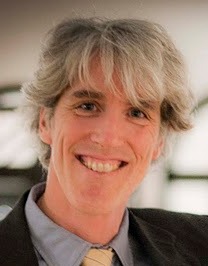Job: Coordinator of Education Abroad, Purchase College, SUNY (NY)
Posted by Jayme Tsutsuse (Kyoto-fu, 2013-Present), organizer of Cross-Cultural Kansai. Click here to join the JETwit Jobs Google Group and receive job listings even sooner by email.
Position: Coordinator of Education Abroad
Posted by: Purchase College (SUNY)
Location: New York, NY
Type: full-time
Overview:
Purchase College, SUNY has a position open for a Coordinator of Education Abroad in the Office of International Programs and Services.
Responsibilities: The Coordinator manages overseas program, exchange and SUNY education abroad marketing through coordinated advertising and recruitment strategies. S/he provides direct service to students from inquiry through application, orientation and re-entry. The Coordinator manages applicant and participant applications and databases and will edit and develop website and promotional materials. S/he collaborates with faculty and staff on short-term program development and implementation. S/he also assists students in finding appropriate scholarships/fellowships and will edit application essays. The Coordinator also assists with international student services including orientations.
Job: Education Abroad Advisor – Center for International Education at Northern Arizona University (Flagstaff, AZ)
Posted by Jayme Tsutsuse (Kyoto-fu, 2013-Present), organizer of Cross-Cultural Kansai. Click here to join the JETwit Jobs Google Group and receive job listings even sooner by email.
Position: Education Abroad Advisor
Posted by: Center for International Education at Northern Arizona University
Location: Flagstaff, AZ
Type: full-time
Overview:
The Center for International Education at Northern Arizona University seeks an enthusiastic candidate with an interest and experience in international education and student affairs and development to work as an Education Abroad Advisor. The Education Abroad Advisor reports directly to the Director for Education Abroad and will have advisory responsibilities for a select number of programs in designated regions of the world. Applications must be submitted by January 20, 2014 and can be submitted herehttp://hr.nau.edu/apply_for_jobs. The Education Abroad Advisor will have responsibility for the following:
Job: International Admissions Coordinator – Rennert International (NY and Miami)
Posted by Jayme Tsutsuse (Kyoto-fu, 2013-Present), organizer of Cross-Cultural Kansai. Click here to join the JETwit Jobs Google Group and receive job listings even sooner by email.
Position: International Admissions Coordinator – Asia, Eastern Europe, Turkey
Posted by: Rennert International
Location: New York and Miami
Type: full-time
Overview:
Rennert International, a leading ESL provider based in New York and Miami is looking for a dynamic, talented individual to join our International Admissions team. The position is based in New York, and is a great opportunity for someone interested in starting out in the field of International Education or ESL. The job description is below and any interested candidates should contact Dorina Zaharia at dzaharia@rennert.com.
Job: On-Site Manager, Summer Bridge Program, Northeaster University (Boston)
Posted by Jayme Tsutsuse (Kyoto-fu, 2013-Present), organizer of Cross-Cultural Kansai. Click here to join the JETwit Jobs Google Group and receive job listings even sooner by email.
Position: On-Site Manager
Posted by: Summer Bridge Program, Northeaster University
Location: Boston, MA
Type: summer program
Overview:
US Pathway Program (USPP) will bring approximately 200 students from China and Nigeria to Northeastern University campus this summer for a unique “Summer Bridge,” as the culminating academic and cultural experience of the USPP. The dates for the Summer Bridge program for students are May 26-August 15.
Job Responsibilities:
We are looking for an experienced and energetic graduate student to act as On-Site Manager (OSM) for this Summer Bridge program. General job responsibilities will include the following:
* Supervise approximately 10-12 Global Student Ambassadors (GSAs)
* Residence Life and Student Conduct
* USPP Liaison
* Administration
Job: Associate Regional Consultant, EA Study Abroad (Southern California or the Pacific Northwest)
Posted by Jayme Tsutsuse (Kyoto-fu, 2013-Present), organizer of Cross-Cultural Kansai. Click here to join the JETwit Jobs Google Group and receive job listings even sooner by email.
Position: Associate Regional Consultant
Posted by: EA Study Abroad
Location: Southern California or the Pacific Northwest
Type: full-time
Overview:
EA Study Abroad has opened its search for an Associate Regional Consultant, part of its University Relations Team, based in either Southern California or the Pacific Northwest. Successful candidates will excel in delivering exceptional service and support to university partners, as well as identifying collaborative programming and initiatives to support enrollment throughout CEA’s program destinations worldwide.
CEA sends thousands of students every year on education abroad programs to locations throughout the world. Working closely with study abroad offices and international program departments across the U.S. and Canada, CEA has established strong relationships with many colleges and universities to expand program options and access for students seeking to study abroad.
For a full job description and application procedures, please see the CEA careers website at: www.ceastudyabroad.com/Careers
Matthew Janus
CEA Study Abroad
Regional Director – West
480-375-2728
mjanus@ceastudyabroad.com
Job: Academic Coordinator – International Education, University of Albany (NY)
Posted by Jayme Tsutsuse (Kyoto-fu, 2013-Present), organizer of Cross-Cultural Kansai. Click here to join the JETwit Jobs Google Group and receive job listings even sooner by email.
Position: Academic Coordinator
Posted by: International Education, University of Albany (SUNY)
Location: Albany, NY
Type: full-time
Overview:
Established in 1844 and designated a University Center of the State University of New York in 1962, the University at Albany’s broad mission of excellence in undergraduate and graduate education, research and public service engages a diverse student body of more than 17,300 students in nine schools and colleges across three campuses.
Located in Albany, New York, New York State’s capital, the University is convenient to Boston, New York City and the Adirondacks.
Job: Assistant Director – Center for Global Education, University of Wisconsin (Whitewater)
Posted by Jayme Tsutsuse (Kyoto-fu, 2013-Present), organizer of Cross-Cultural Kansai. Click here to join the JETwit Jobs Google Group and receive job listings even sooner by email.
Position: Assistant Director
Posted by: Center for Global Education, University of Wisconsin – Whitewater
Location: Whitewater, WI
Type: full-time
Overview:
Founded in 1868, the University of Wisconsin – Whitewater is a premier public regional university with an enrollment of over 12,000 students in 50 undergraduate majors, 13 master’s degree programs, and one specialist degree program. It offers high-quality, career oriented programs with a model general education curriculum. UW-Whitewater is part of the 26-campus University of Wisconsin System. Located in a community of 14,622 residents near the scenic Kettle Moraine State Forest in southeastern Wisconsin, Whitewater is within convenient driving distance to the metropolitan areas of Milwaukee, Madison, and Chicago.
CLAIR magazine “JET Plaza” series: Philippe Arseneau (Miyagi)
Each month, current and former JET participants are featured in the “JET Plaza” section of the CLAIR Forum magazine. The January 2014 edition includes an article by JET alumnus Philippe Arseneau. Posted by Celine Castex (Chiba-ken, 2006-11), currently programme coordinator at CLAIR Tokyo.
***********

“In my experience, four factors made a difference in this awkward transition from Japan to Canada, from classroom to career, especially with regards to landing and holding a rewarding job: building a professional network; showing initiative; getting involved; and tailoring one’s job to one’s background and interests.”
Philippe Arseneau (Miyagi-ken, 1991-94) is from the Canadian Province of Québec and grew up in Montréal, the world’s second largest French-speaking city. Drawn to Japanese martial arts in his early age, Philippe developed an academic interest for Japan’s economic prowess while studying Labor Relations at the University of Montréal in the late 1980s. Changing his line of study to Anthropology, he specialized on Asian cultures and graduated with a Master’s degree after writing a thesis on “The Emergence of Initiation Rituals in Large Japanese Firms”. The JET Programme came as a fitting opportunity to deepen his understanding of Japan, and in the summer 1991 he was sent to Miyagi Prefecture where he taught English for the first year in the rural community of Tajiri, the second in Sendai, and the third in Natori. Soon after returning to Montréal, he worked as a sales representative for Japan Airlines until 2013. He now is a Japan lecturer at the University of Sherbrooke.
From Classroom to Career
Having graduated from the JET Programme nearly 20 years ago, I was asked earlier this year to deliver a keynote speech before representatives of the Canadian JETAA on the transition, difficult for some, from Japanese classroom to career at home. This paper is a concise version of it.
First, here is some background: I am a Montreal-born Canadian, raised in French, who learned English at school but more intensely through a series of summer jobs as a river guide in Ontario where I met my wife. And a couple of bilingual kids later, I am now pushing 50. I hold a MSc in Cultural Anthropology, with a focus on Japan. Admittedly not a market-oriented diploma. Weeks after submitting my final thesis in late spring 1991, I left to work as an ALT (AET back then) in Miyagi Prefecture where I would stay three years. A new Emperor had been anointed two years earlier. The economic bubble was starting to deflate. Japan banks were still the wealthiest on earth, the nation’s gigantic trade surplus fueled anger abroad and had caused an image problem for years, to which the JET Programme was allegedly meant to provide a partial solution by exposing western graduates to its culture in the hopes they would eventually go home to spread the gospel of a new and open Japan.
Like most ALTs, I taught English, but occasionally French. I also edited a JET prefectural newsletter called “The Miyagi Drum”. Nurturing post-graduates dreams, I spout on a new Japan cultural thesis and applied for doctoral studies at various universities around the world, expecting a grant or some kind of academic interest. Unfortunately, I never got to see the project through because of a career choice. And that brings me to the main topic of this article: professional life after JET. No doubt, the JET Programme can contribute to shaping one’s career as it did mine, though it offers less to those whose professional ambition lies outside the business of education– which was back then and perhaps still today the case with most ALTs. For want of providing highly transferable work skills, the JET experience managed at least to arouse curiosity among potential Canadian employers, but did not clinch me a job in and of itself. In my experience, four factors made a difference in this awkward transition from Japan to Canada, from classroom to career, especially with regards to landing and holding a rewarding job: building a professional network; showing initiative; getting involved; and tailoring one’s job to one’s background and interests.
*****
Writer, researcher, and JET alumnus Matt Leichter (Saitama-ken ’03-’05) will give an encore performance of his lecture, “College Education: Certain Debt, Uncertain Income.” It will again be hosted by the Henry George School of Social Science in New York City. The event date is Wednesday, January 29, at 6:30 PM. The location is not the school’s normal address; instead it will be at:
NYC Seminar and Conference Center
71 West 23rd Street (corner of 6th Ave.)
New York, NY 10010
Here is the lecture’s abstract:
Soaring costs for education, together with limited job opportunities and stagnant wage growth, place substantial financial and psychological burdens on students.
Noted columnist and researcher Matt Leichter reviews tuition inflation, cuts in public funding and the business of lending to students. Mr. Leichter will also propose reforms to the system of financing college education.
Space is limited; please register to attend by emailing hgs.billy@gmail.com.
Job: Visitor’s Associate at Japan Society (NY)
Thanks to JET alum Christy Jones of Japan Society (NY) for passing this on. Posted by blogger and podcaster Jon Dao (Toyama-ken, 2009-12). Click here to join the JETwit Jobs Google Group and receive job listings even sooner by email.
————————————————————————————————————
Position: Visitor’s Associate
Type: Part-time
Overview:
The Visitor Services Associate maintains the Japan Society’s visitor service’s desk as an ambassador interacting with the general public. This includes greeting and welcoming visitors, answering questions, providing information about exhibits and programs, selling tickets, memberships, and catalogues.
Duties include: processing ticket orders and gallery admissions; selling memberships; light clerical duties; accepting packages; assisting visitors, trustees, donors, and vendors on the phone and in person, and assisting with related activities and projects. Read More
Thanks to AJET’s Sarah Stout and Kay Makishi for passing on this JET-relevant opportunity. Posted by blogger and podcaster Jon Dao (Toyama-ken, 2009-12). Click here to join the JETwit Jobs Google Group and receive job listings even sooner by email.
————————————————————————————————————
Overview:
Each year, an independent committee of six experts – three each from the United States and Japan — selects one outstanding Japanese and one outstanding US citizen to be a resident Sasakawa Peace Foundation Fellow at Pacific Forum’s Honolulu office. This prestigious fellowship opportunity supports a mid-career academic or professional by providing the cost-of-living and institutional support to allow him or her to explore a security-related issue that concerns the alliance. Fellows are provided with the following: Read More
Job: Global Experiences Coordinator – Penn State (University Park, PA)
Posted by Jayme Tsutsuse (Kyoto-fu, 2013-Present), organizer of Cross-Cultural Kansai. Click here to join the JETwit Jobs Google Group and receive job listings even sooner by email.
Position: Global Experiences Coordinator
Posted by: Penn State’s Liberal Arts Career Enrichment Network
Location: University Park, PA
Overview:
As a member of the College of the Liberal Arts career enrichment team, the Global Experiences Coordinator is a key contributor to the Network’s efforts to increase and support Liberal Arts students’ participation in a range of international experiences. The Coordinator will work with the Network team to provide overall career information and advice, including resume reviews and individual student meetings.
JET Talks: Temple by Temple Sneak Peek
JET Talks is JETAADC’s speaker series modeled after TED Talks that features dynamic and interesting individuals to inspire innovative ideas and conversation on Japan within the DC community.
Chelsea is from Guam. Elayna is from Michigan. In 2009, they both moved to Japan with the JET Programme to teach English in Ehime Prefecture. While there, they traveled the 900-mile pilgrimage route in Shikoku visiting 88 temples in 15 days. With so many stories from the trip, they began looking for a way to combine their talents (Elayna illustrates; Chelsea writes) to tell these stories. Using Kickstarter, they successfully funded their project and returned to Shikoku to travel the pilgrimage route once more — this time creating illustrated hand-bound books, postcards, bracelets and more for the 270 donors that made their trip possible.
On Wed., Jan. 29, Chelsea Reidy and Elayna Snyder of bigricefield.com will make a TED Talks-style presentation at Georgetown University in Washington, DC (register today!) telling their story — from their time on JET through their book project, crowdfunding, and the relationships they built along the way. Until then, Chelsea and Elayna have shared some pictures from their journey…

Chelsea paused on the way down from temple 60. After biking up numerous hills, the road became to steep and we had to leave our bikes and finish the trek on foot.

This illustration was inspired by all of the help we received along the way. Here, a woman offers the girl fresh spring water.
You can find more pictures of their journey and illustrations from their book on the JETAADC blog.
【RocketNews24】Five of Japan’s best locations to ski and snowboard
Posted by Michelle Lynn Dinh (Shimane-ken, Chibu-mura, 2010–13), editor and writer for RocketNews24. The following article was written by Philip Kendall (Fukushima-ken, Shirakawa-shi, 2006–11), senior editor and writer for RocketNews24, a Japan-based site dedicated to bringing fun and quirky news from Asia to English speaking audiences.

For those of us up in the northern hemisphere, winter is already in full swing. And for skiers and snowboarders, that can mean only one thing: the snow-covered mountains are calling and it’s a race against the clock to get the most out of them.
Treated to generous snow dumps each winter and coupled with the fact that so much of the country is mountainous, Japan is one of the best locations in the world for ski and snowboarding fun, not to mention some of the best powder snow in the world. But which resorts should you be sure to visit before the powder turns to slush? Check out this list of five of Japan’s greatest, and our favourite, places to ski and snowboard!
Job: Program Coordinator – Humphrey Fellowship Program, Vanderbilt University (Nashville)
Posted by Jayme Tsutsuse (Kyoto-fu, 2013-Present), organizer of Cross-Cultural Kansai. Click here to join the JETwit Jobs Google Group and receive job listings even sooner by email.
Position: Program Coordinator
Posted by: Humphrey Fellowship Program, Vanderbilt University
Location: Nashville, TN
Type: full-time
Overview:


